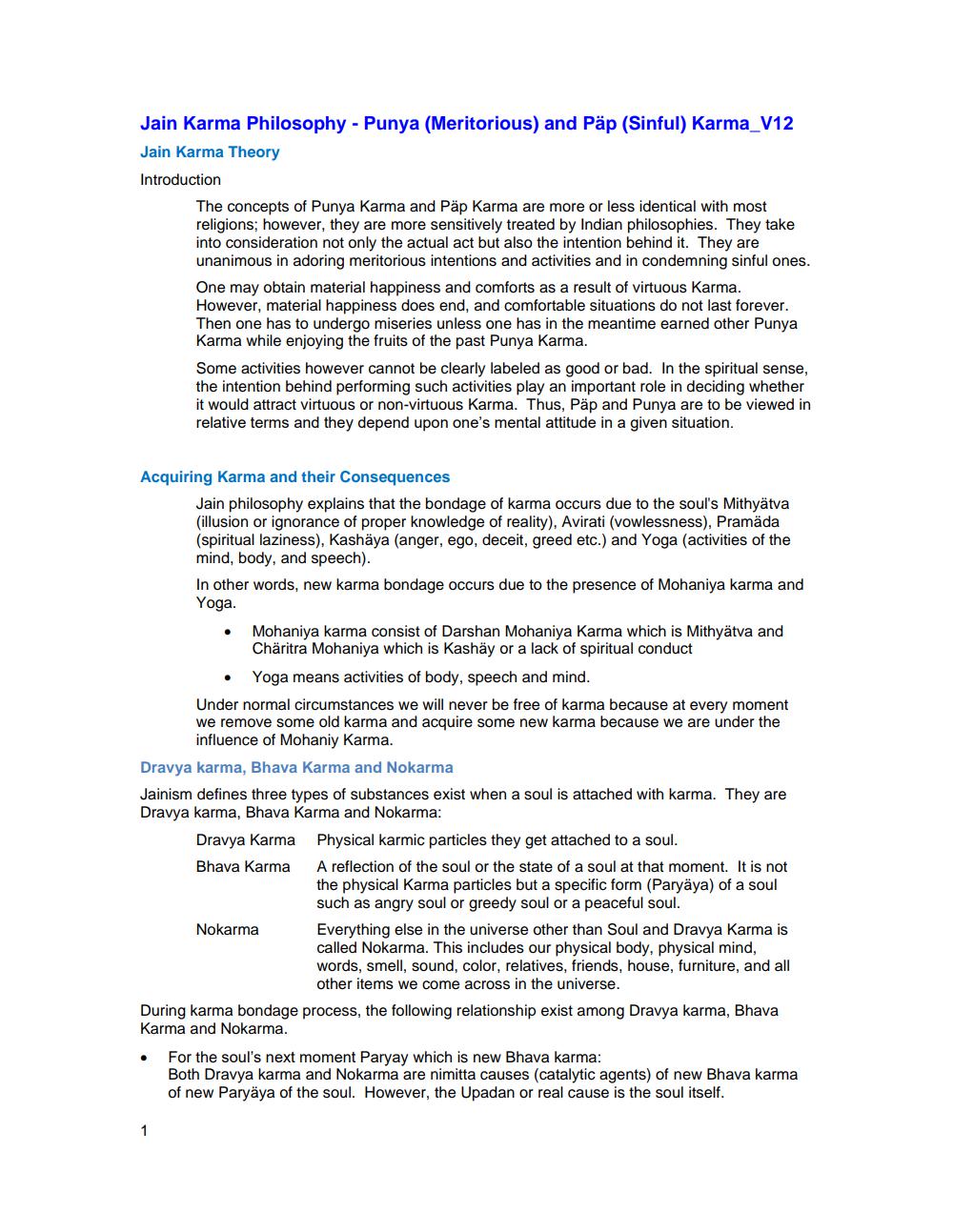Book Title: Jain Karma Philosophy Punya and Pap Karma Author(s): Pravin K Shah Publisher: JAINA Education Committee View full book textPage 1
________________ Jain Karma Philosophy - Punya (Meritorious) and Päp (Sinful) Karma_V12 Jain Karma Theory Introduction The concepts of Punya Karma and Pap Karma are more or less identical with most religions; however, they are more sensitively treated by Indian philosophies. They take into consideration not only the actual act but also the intention behind it. They are unanimous in adoring meritorious intentions and activities and in condemning sinful ones. One may obtain material happiness and comforts as a result of virtuous Karma. However, material happiness does end, and comfortable situations do not last forever. Then one has to undergo miseries unless one has in the meantime earned other Punya Karma while enjoying the fruits of the past Punya Karma. Some activities however cannot be clearly labeled as good or bad. In the spiritual sense, the intention behind performing such activities play an important role in deciding whether it would attract virtuous or non-virtuous Karma. Thus, Päp and Punya are to be viewed in relative terms and they depend upon one's mental attitude in a given situation. Acquiring Karma and their consequences Jain philosophy explains that the bondage of karma occurs due to the soul's Mithyätva (illusion or ignorance of proper knowledge of reality), Avirati (vowlessness), Pramada (spiritual laziness), Kashäya (anger, ego, deceit, greed etc.) and Yoga (activities of the mind, body, and speech). In other words, new karma bondage occurs due to the presence of Mohaniya karma and Yoga. Mohaniya karma consist of Darshan Mohaniya Karma which is Mithyatva and Charitra Mohaniya which is Kashay or a lack of spiritual conduct Yoga means activities of body, speech and mind. Under normal circumstances we will never be free of karma because at every moment we remove some old karma and acquire some new karma because we are under the influence of Mohaniy Karma. Dravya karma, Bhava Karma and Nokarma Jainism defines three types of substances exist when a soul is attached with karma. They are Dravya karma, Bhava Karma and Nokarma: Dravya Karma Physical karmic particles they get attached to a soul. Bhava Karma A reflection of the soul or the state of a soul at that moment. It is not the physical Karma particles but a specific form (Paryaya) of a soul such as angry soul or greedy soul or a peaceful soul. Nokarma Everything else in the universe other than Soul and Dravya Karma is called Nokarma. This includes our physical body, physical mind, words, smell, sound, color, relatives, friends, house, furniture, and all other items we come across in the universe. During karma bondage process, the following relationship exist among Dravya karma, Bhava Karma and Nokarma. For the soul's next moment Paryay which is new Bhava karma: Both Dravya karma and Nokarma are nimitta causes (catalytic agents) of new Bhava karma of new Paryaya of the soul. However, the Upadan or real cause is the soul itself.Page Navigation
1 2 3 4 5
